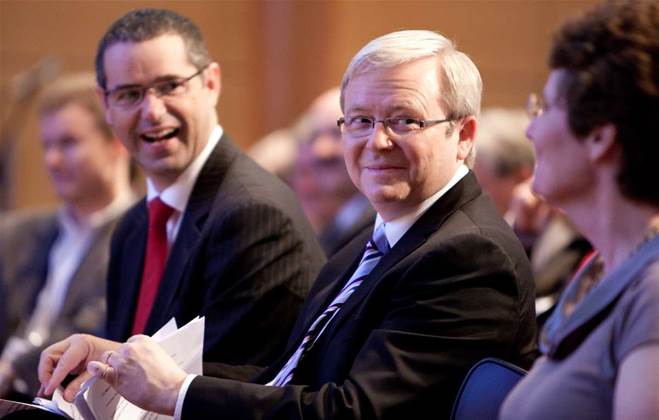15. Provided the seed funding for ACCAN

This one's fairly self-explanatory, but effectively Conroy stumped up a $700,000 grant to get the Australian Communications Consumers Action Network (ACCAN) off the ground. ACCAN has since taken a leading — and very public-facing — role in fighting for consumer rights in the telecommunications arena, taking on issues such as bill shock, customer service standards and poor coverage.
14. Pulling the pin on OPEL
OPEL Networks was a 50:50 joint venture between Optus and Elders that was charged with bringing broadband services to regional and rural Australia, fulfilling a then-Coalition Government policy initiative. The project was to use a mix of wireless and ADSL2+ technologies. Conroy initially committed to honour the OPEL contracts, but pulled the pin on funding about five months later, citing alleged contractual shortfalls.
The decision to can OPEL saw Telstra drop legal action it had filed against the Coalition Government that instigated OPEL. Optus threatened legal action, though did not appear to file any.
13. Booting Telstra from the NBN RFP
With OPEL scrapped, the Government started canvassing prospects to build what became known as NBN mark 1. One of the defining moments of mark 1 was Telstra's exclusion from the process by Conroy for failing to meet "one of five mandatory requirements". The carrier had submitted a 13-page document to the Government that fell short of its requirements. Excluding the incumbent could be classified as a gutsy move.
12. iiTrial contempt, f-bombs and other gaffes
Though not particularly gaffe-prone, Conroy made a couple over the years that stand out. He famously put himself in potential prejudice of the outcome of the trial between the film industry and iiNet when he compared the ISP's "stunning" defence to a Yes Minister episode. The comment didn't go down too well with iiNet chief Michael Malone, who sought legal advice, and the Opposition piled on allegations of prejudice.
Conroy made some other notable gaffes, including an inadvertent leak of the value of Telstra's copper assets, and dropping the f-bomb and s--t into a pair of speeches.
11. Targeted backhaul blackspots
One hears few, if any, complaints about the Regional Backbone Blackspots Program, which saw $250 million put into an open access transmission network spanning large sections of regional Australia. The network was built by Nextgen Networks, and won praise and support from ISPs, which wasted little time in making use of the transmission network.
Read on for more Stephen Conroy memories and milestones.


_(20).jpg&h=140&w=231&c=1&s=0)








 iTnews Benchmark Awards 2026
iTnews Benchmark Awards 2026
 iTnews Executive Retreat - Security Leaders Edition
iTnews Executive Retreat - Security Leaders Edition
 iTnews Cloud Covered Breakfast Summit
iTnews Cloud Covered Breakfast Summit
 The 2026 iAwards
The 2026 iAwards












_(1).jpg&h=140&w=231&c=1&s=0)



